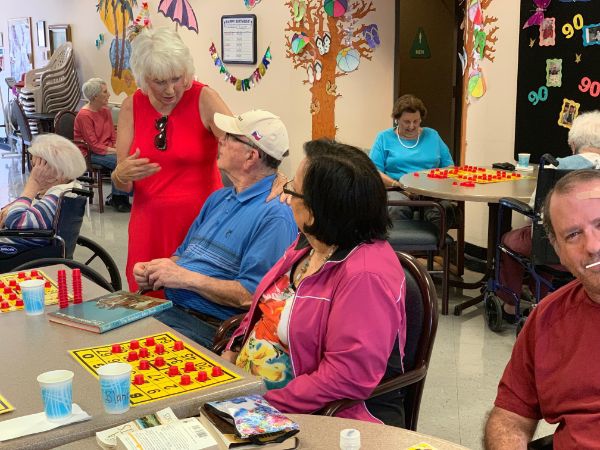
Adult Day Services
Lauren NelsonFew know the combined beauty and hardship of caring for aging loved ones the way Ella Lehnertz does. A former Lodi teacher, Lehnertz found herself caring for two of the people closest to her: her mother and then her husband, both of whom were unable to be left alone as their health declined over the years.
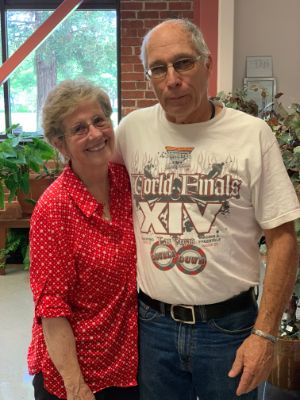
Lehnertz first became the caregiver for her mother, who was diagnosed with Parkinson’s disease. Later, she took on the same care role for her husband when an Alzheimer’s diagnosis struck their family.
“Ella is a compassionate care provider, and I have watched her give so much of herself to her loved ones over the years,” said Terri Whitmire, program director of Adventist Health Lodi Memorial’s Adult Day Services.
In both cases, there was one place that offered her reprieve from constant care. It was an adult day program she found at Hutchins Street Square. Offered through what is now Adventist Health Lodi Memorial, Adult Day Services is a five-days-a-week center for Lodi’s aging adults. It is a place where participants with dementia, Alzheimer’s and other debilitating diseases can go during the day to interact with each other, be entertained and do activities.
Terri Whitmire has been the program director for 29 years and has worked with hundreds of participants and families in Lodi.
“We’re a special place where our staff enjoy the participants as much as they enjoy coming to see us every day,” she said. “The program gives caregivers a break to work, run errands or even just get some much-needed rest. Many family members tell me that the program relieves some of the stress and strain that can happen as our loved ones become limited as they age. It also provides their loved ones a purpose and quality of life as they travel through the very difficult journey of debilitation.”
At Adult Day Services, participants take every day and activity at their own pace. They practice social skills with activities and games. On holidays, they celebrate by making crafts, singing songs in the courtyard or enjoying barbecues together.
For Lehnertz, the program provides the kind of relief she thinks could benefit others. An estimated one in eight California baby boomers who reach age 55 will develop Alzheimer’s, according to the Alzheimer’s Association, and 1.1 million Californians provide unpaid care for loved ones with the disease.
“The program is a jewel. It is a gem of Lodi. I wish there were more,” she said.
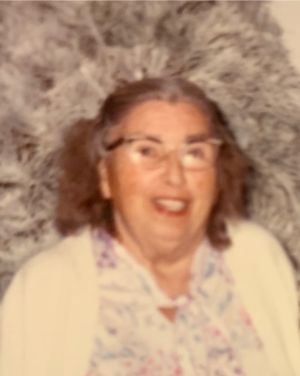
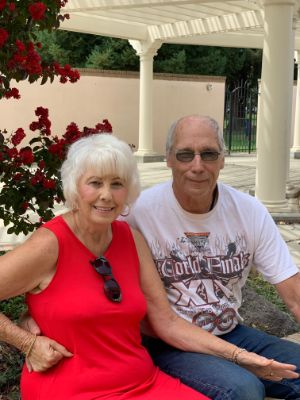
When Lehnertz first heard about Adult Day Services, she was well into her 20-year career of teaching Lodi’s fifth-graders. She tried to keep her teaching job, though her mother’s tremors made it difficult for her to be left alone. She thought a daytime program was something her mother, Susan Powell, would never do. Powell had always lived in the country and never learned to drive. She wasn’t used to neighbors and didn’t interact a lot with others. She was really only close with her husband and children.
But, much to Lehnertz’s surprise, her mother gave the program a shot. And for one hour, Lehnertz – feeling even more nervous than her mother – watched from a window in a side office, making sure her mom would be OK.
“It was like the first day I had taken my little boys to school. I was the one who was more upset and worried about them,” Lehnertz said. “I cried like a little baby.”
As she stood in that side office, Lehnertz watched as an instructor began a session of light exercises. No way would her mother like this, Lehnertz thought. But then, she saw her mom, sitting in her chair, doing leg lifts. Could it be? Then, she raised her hands and followed the instructor’s motions. Next, when someone came to perform and lead group singing, her mom sang right along with everyone else.
“’I hate to tell you, but your mom is growing up,” Whitmire warmly joked as they watched from behind the window.
Over the months, Lehnertz saw a change in her mother, one that she describes as independence as she had never seen before from her mother. No longer was Powell sitting home and alone. After experiencing Adult Day Services, she began spending more time on her front porch to watch people as they passed by. Each person who would visit would also be expected to take one of her homemade bookmarks, each with their own personal note from Powell -- a skill she had learned on one of the many craft days at the center.
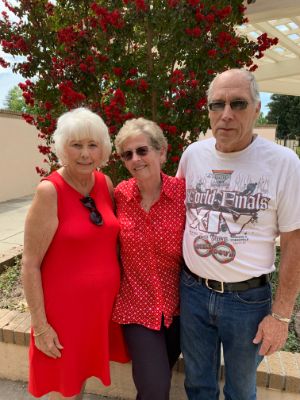
“My mom never did crafts, but she loved making them there,” Lehnertz said, adding that there is still a display area behind the couch where she loved showing visitors what she had created. One year, she insisted that the Thanksgiving centerpiece be the turkey she had carefully crafted from pine cones at Adult Day Services.
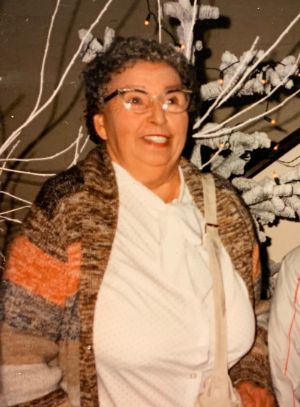
The positive difference it made in her mother’s life made it an obvious choice for Lehnertz the next time she would care for a loved one. This time, it was her husband, Tom Lehnertz. They’ve been married for 51 years, together since Ella Lehnertz was only 17. An Alzheimer’s diagnosis kept him from caring for himself in the same way. He had worked for Pacific Gas and Electric for 36 years and retired at the age of 58. Five years later, he received the diagnosis that changed the couple’s lives.
Once again, as she sought out the day program, Ella Lehnertz found herself watching from behind the mini blinds of that same side office. This time, she was watching her husband on his first day at Adult Day Services. All of a sudden, he started interacting with everyone else just like him. And he fell in love with the activities, just as her mother had.
“He has the same spot Momma had,” she said, speaking of the little display area where they show off their crafts.
Tom Lehnertz goes to Adult Day Services every day. It is his job.
“That’s the way he sees it. He loves helping Miss Terri and the other ladies,” she said. “That’s his job; he doesn’t see it as a daycare center. His job is to help Miss Terri. He says, ‘They need me today.’”
Lehnertz reached out to Adult Day Services to help two of the people she’s loved the most in her life. What she didn’t expect was that the program would help her in just as many ways as it helped them.
“For me, it’s worth it to be able to get my rest, too,” Lehnertz said. “Every town needs this. Every caregiver needs a time out.”


